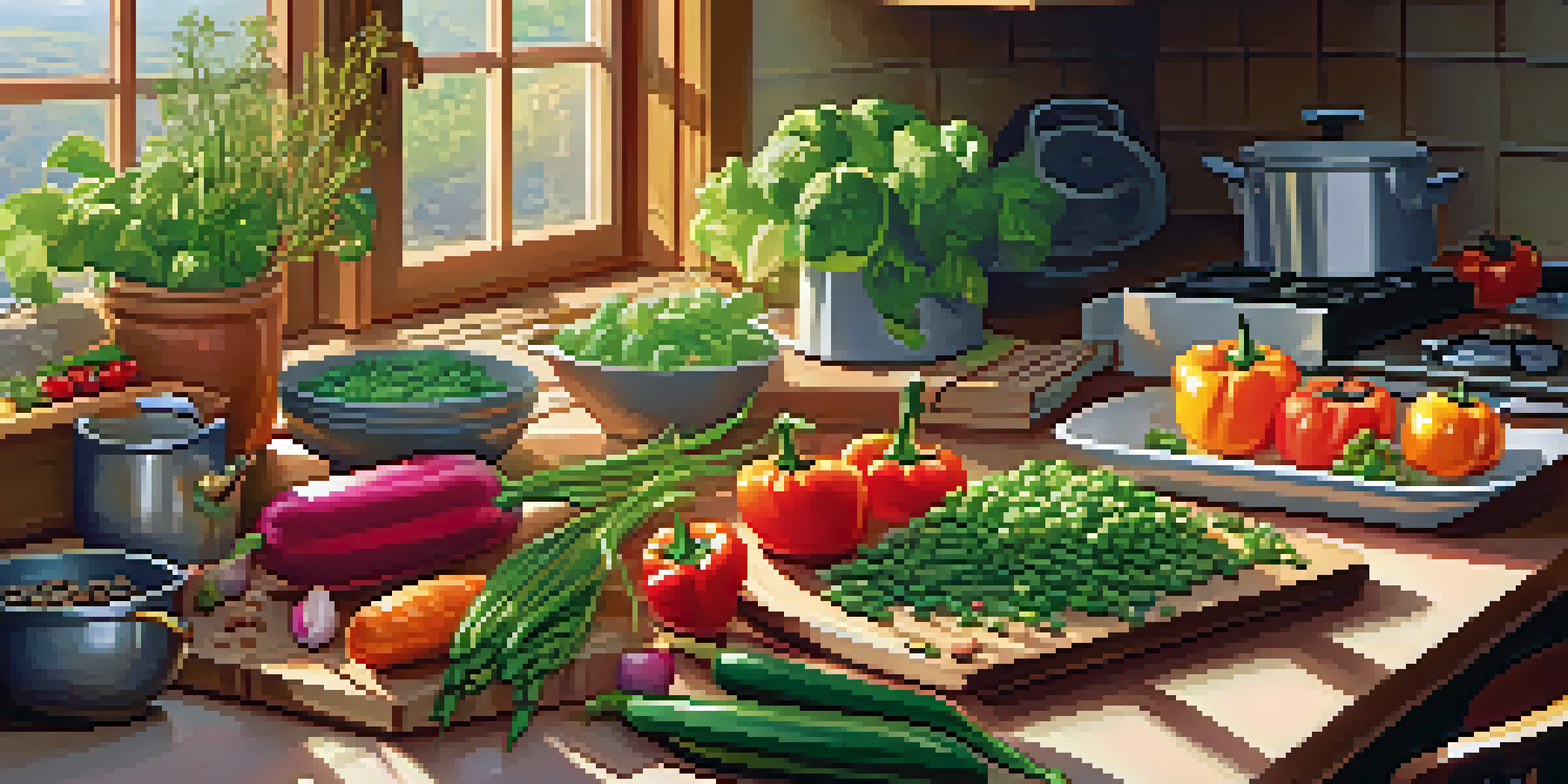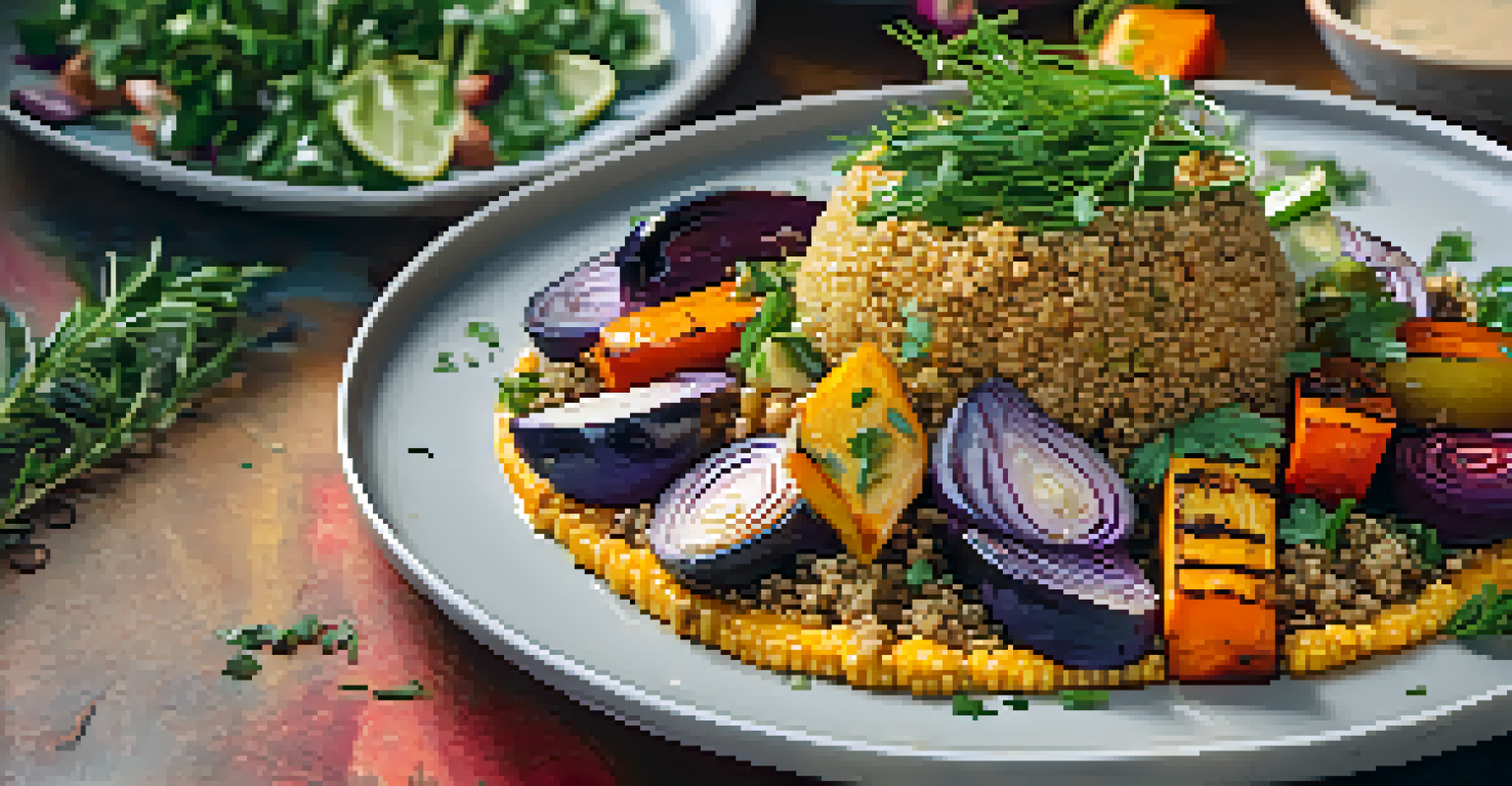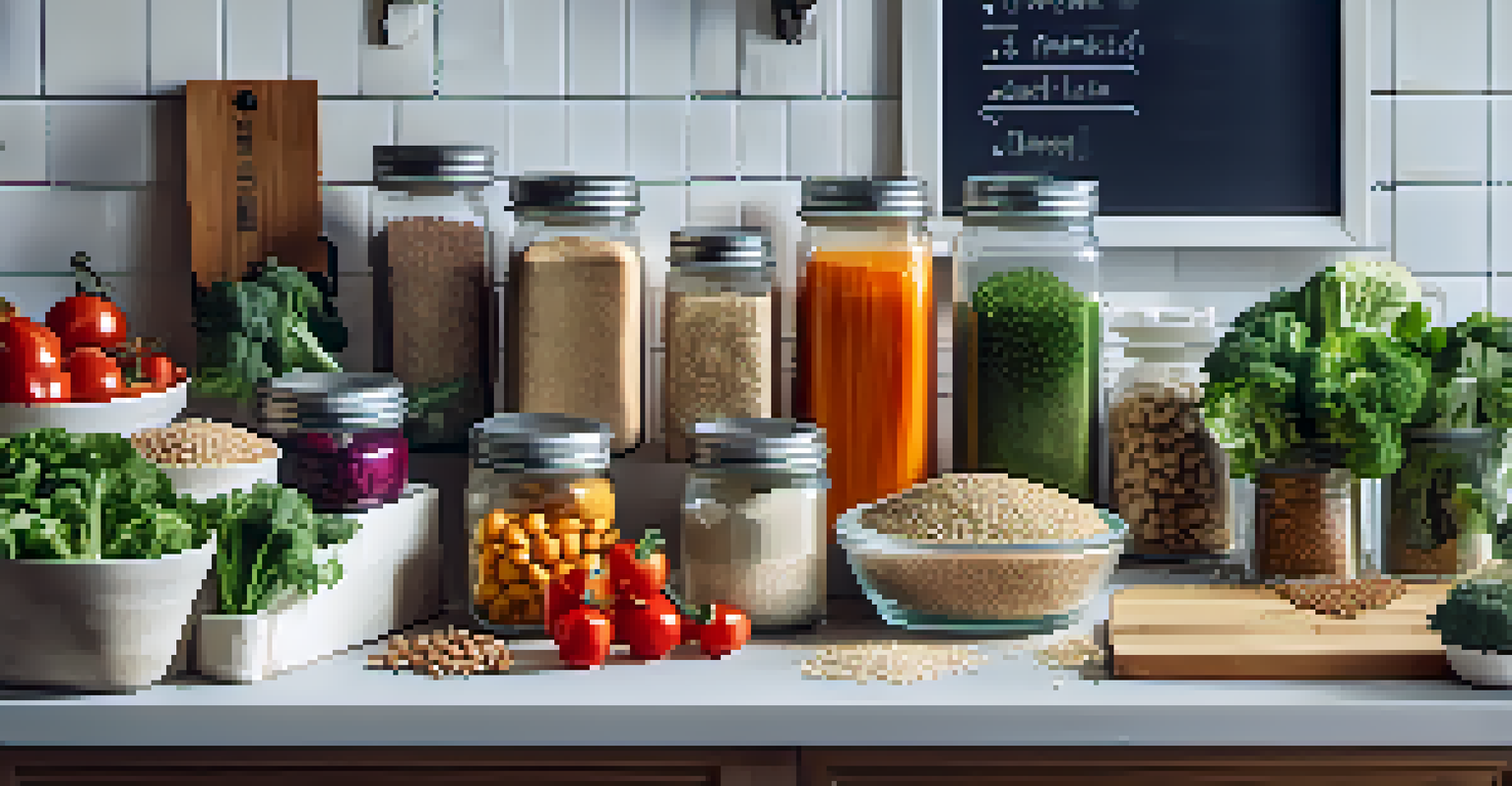Understanding Vegan Cooking Techniques for Beginners

What is Vegan Cooking and Why Choose It?
Vegan cooking revolves around preparing meals without any animal products, focusing instead on plant-based ingredients. This approach not only supports animal welfare but can also lead to numerous health benefits, including lower cholesterol and improved digestion. Many people choose this lifestyle for ethical reasons or simply to explore new flavors and cooking methods.
The future of food is plant-based, and the future of food is now.
Adopting vegan cooking allows you to experiment with a variety of ingredients, from fresh vegetables and legumes to grains and nuts. It encourages creativity in the kitchen, as you learn to make dishes that are both satisfying and nourishing. Plus, with an increasing number of vegan alternatives available, it's never been easier to transition.
As a beginner, understanding the basics of vegan cooking can lead to a fulfilling culinary journey. You'll discover how to make familiar dishes without animal products, giving you the freedom to create meals that align with your values and taste preferences.
Essential Ingredients for Vegan Cooking
Stocking your pantry with the right vegan ingredients is crucial for successful cooking. Staples like beans, lentils, quinoa, and a variety of fresh vegetables form the backbone of many vegan dishes. Additionally, having nuts, seeds, and whole grains on hand can add texture and nutrition to your meals.

Don’t forget about spices and herbs! They are your best friends in vegan cooking, helping to elevate flavors and create depth in your dishes. Ingredients like nutritional yeast can even provide a cheesy flavor without dairy, making it a favorite among vegans.
Vegan Cooking for Health and Ethics
Vegan cooking emphasizes plant-based meals that promote animal welfare and can lead to significant health benefits.
By familiarizing yourself with these essential ingredients, you'll be well-equipped to tackle a wide range of vegan recipes. The more you experiment and combine different flavors, the more confident you'll become in your cooking skills.
Mastering Basic Cooking Techniques
Understanding basic cooking techniques is vital for any beginner in the kitchen, and vegan cooking is no exception. Techniques such as sautéing, steaming, and roasting can bring out the best flavors in your ingredients. For instance, roasting vegetables caramelizes their natural sugars, enhancing their sweetness and texture.
Veganism is not a diet, it's a lifestyle that promotes kindness to all beings.
Another valuable technique is meal prepping, which can save time and make your cooking process smoother. By chopping vegetables or cooking grains in advance, you can quickly assemble meals throughout the week. This approach not only streamlines your cooking but also helps reduce food waste.
As you practice these basic techniques, you'll gain confidence and develop your own style. Each method opens up a world of possibilities, allowing you to create delicious vegan meals with ease.
Exploring Plant-Based Protein Sources
Protein is a common concern for those new to vegan cooking, but there are plenty of plant-based sources available. Foods like beans, lentils, chickpeas, and tofu provide ample protein while keeping your meals delicious and satisfying. Incorporating a variety of these options ensures you get a complete amino acid profile.
Tempeh, made from fermented soybeans, is another fantastic protein source that adds a unique flavor and texture to dishes. You can marinate and grill it, use it in stir-fries, or crumble it into sauces for added depth. This versatility makes it a favorite among many home cooks.
Essential Ingredients for Success
Stocking your pantry with beans, grains, and spices is key to creating delicious and nutritious vegan dishes.
By getting creative with your protein sources, you can create well-balanced meals that keep you energized. Remember, combining different types of plant proteins can help you meet your nutritional needs while keeping your meals exciting.
Experimenting with Flavorful Vegan Substitutes
One of the joys of vegan cooking is discovering how to substitute traditional ingredients with plant-based alternatives. For example, you can use almond milk instead of cow's milk or coconut cream in place of heavy cream. These substitutes often bring their own unique flavors, making your dishes even more interesting.
When it comes to baking, applesauce can replace eggs in many recipes, adding moisture and sweetness. Similarly, flaxseed meal mixed with water can create a binding agent that mimics the properties of eggs. These swaps can lead to delightful surprises in your baked goods.
The key to successful substitutes is to experiment and find combinations that you love. Over time, you'll develop a keen sense of what works best, allowing you to enjoy your favorite dishes in a vegan-friendly way.
Tips for Successful Meal Planning
Meal planning can make your transition to vegan cooking much smoother. By planning your meals for the week ahead, you can save time, reduce stress, and ensure you have all the ingredients you need on hand. Start by choosing a few recipes that excite you and create your shopping list based on those meals.
Consider batch cooking some components, like grains or roasted vegetables, to use throughout the week. This not only saves time but also allows you to mix and match ingredients for various meals, keeping things interesting. Think of it as building a foundation for your culinary creations.
Building a Supportive Community
Connecting with others through online forums and local meetups enhances your vegan cooking journey with shared tips and inspiration.
With a little preparation and foresight, you'll find that meal planning can transform your cooking experience. It empowers you to make healthier choices and enjoy a variety of dishes without feeling overwhelmed.
Finding Community and Resources for Support
Embarking on a vegan cooking journey can be much more enjoyable when you connect with others who share your passion. Online forums, social media groups, and local meetups can provide valuable support and inspiration. Engaging with a community allows you to share tips, ask questions, and discover new recipes.
There are also countless resources available, from cookbooks to YouTube channels dedicated to vegan cooking. These platforms can offer guidance on everything from basic techniques to advanced culinary skills. Watching others cook can inspire you to try new methods and expand your repertoire.

Don't hesitate to reach out and seek out these communities and resources as you navigate vegan cooking. They can provide encouragement and motivation, making your journey all the more rewarding.